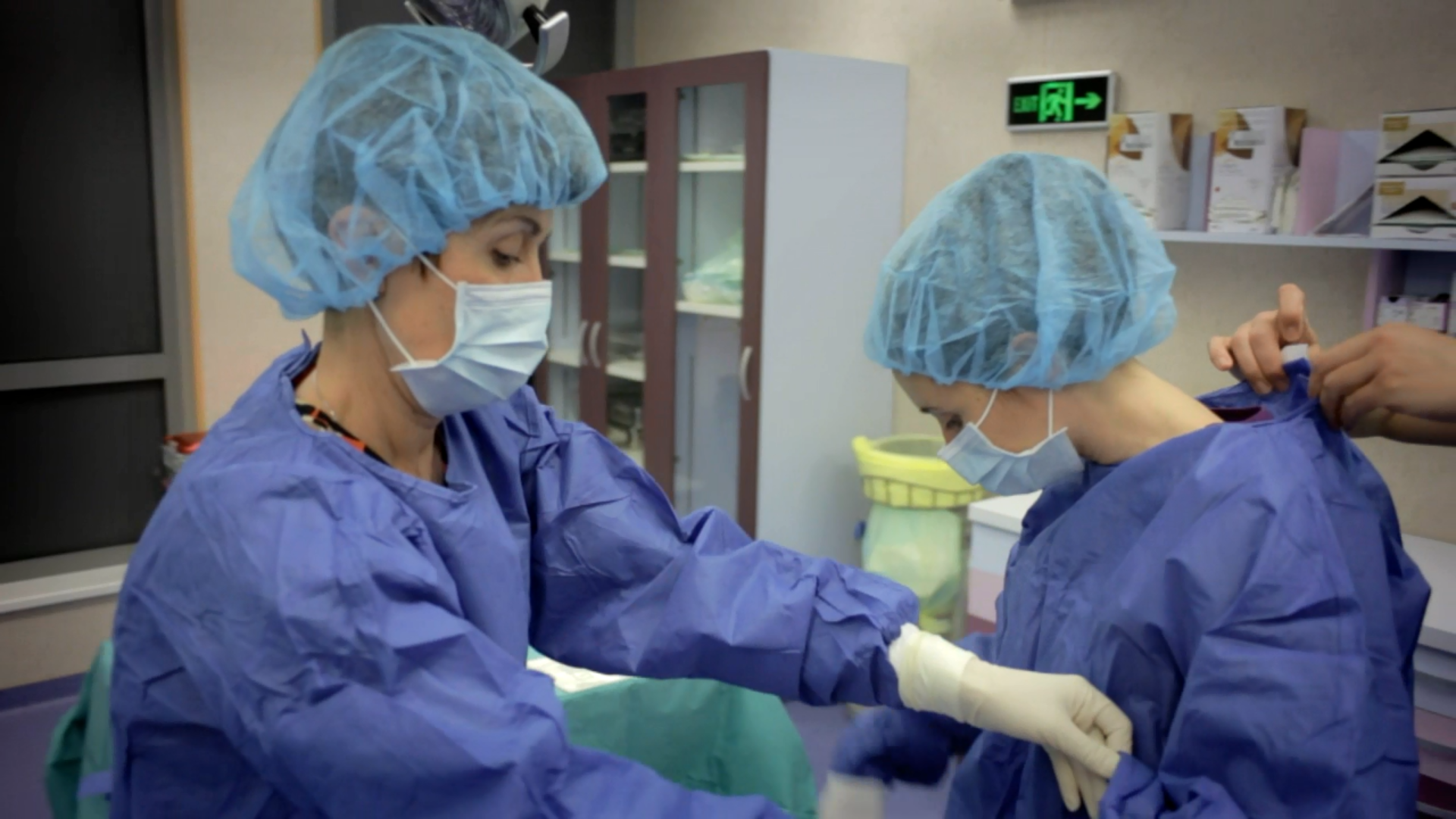Transvaginal laparoscopy
What is the transvaginal laparoscopy?
The transvaginal laparoscopy is an alternative to the standard diagnostic laparoscopy. It was involved in the clinical practice in 1998. In combination with the office hysteroscopy, transvaginal laparoscopy gives information about the condition of the uterine cavity and the fallopian tubes. That is why the transvaginal laparoscopy could replace the hysterosalpingography. In addition to the passability of the fallopian tubes, it gives information about possible adhesions or endometriosis, which is impossible to be detected with hysterosalpingography. There are less discomfort and pain after the transvaginal laparoscopy.
When is it applicable?
- unexplained with other diagnostic methods infertility
- diagnosis of fallopian tubes passability
- diagnosis of adhesions
- diagnosis of endometriosis
How do we perform it?
Unlike the standard diagnostic laparoscopy, which is performed through small cuts in the abdominal wall, the transvaginal laparoscopy is performed through the vagina. We perform the procedure under spinal anesthesia. The specialist passes with a needle through the back vaginal fornix to the recto-uterine pouch. The needle allows the insertion of a particular device called trocar, which has visual equipment. The team monitors its actions on a screen, and the manipulation can be digitally recorded.
What are the advantages of the transvaginal laparoscopy to the standard diagnostic laparoscopy?
- less invasive procedure
- minimal risks for the patient
- visualization of the organs in their usual position
- early diagnostic of infertility
What is the minimum hospital stay?
Six hours
What are the contraindications for transvaginal laparoscopy?
- intact hymen
- tight vagina
- severe vaginal infections
- fixed retroverted uterus
- previous abdominal and some other types of surgeries
What is the recovery period?
After the operation, the patient may feel some discomfort including:
- slight nausea as a result of the medication or surgery
- pain in the neck or the shoulder from the gas in the abdominal cavity
- irritated throat or hoarse voice if during the full anesthesia the patient was intubated
- spasms similar to menstrual
- bleeding like menstrual for a couple of days
- muscle pain
Schedule your gynecological prevention now
Call +359 2 920 0901 and book your medical appointment for gynecological prevention or with a reproductive specialist. Use the other ways to contact Dr. Shterev Hospital - our online booking form, the Viber channel or Facebook Messenger. Follow the instructions and meet your trusted medical specialist.
 Медицински комплекс „Д-р Щерев”
Медицински комплекс „Д-р Щерев” 